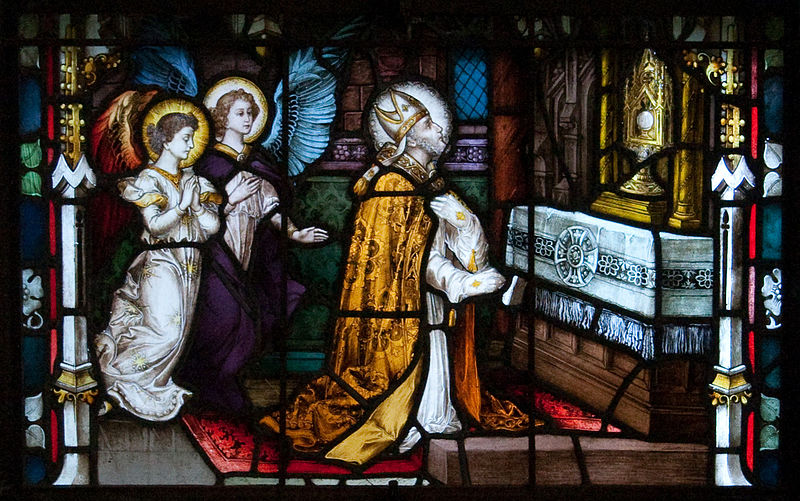6 August 2012
FEAST OF THE TRANSFIGURATION OF THE LORD
FEAST OF THE TRANSFIGURATION OF THE LORD
Gospel (Year B)
From the gospel of Mark (9:2-10)
 |
| Fra Angelico The Transfiguration shows the directness, simplicity and restrained palette typical of these frescoes. Located in a monk's cell at the Convent San' Marco, its apparent purpose is to encourage private devotion. |
Mat 17:1-13
|
Mar 9:1-12
|
Luke 9:28-36
|
Third
Reading
From a homily by Saint John of Damascus
(Hom. in transfiguration
Domini, 17- 18: PG 96, 572-573)
A bright cloud overshadowed them, and seeing within it Jesus the Savoir with Moses and Elijah, the disciples
were filled with great fear.
Of old when Moses saw God he
experienced the divine darkness, indicating the symbolic nature of the law; for
as Paul has written, the law contained only a shadow of the things to come, not the reality
itself. In the past Israel could not look at the transient glory on the face of Moses; but we,
beholding the glory of the Lord with unveiled faces, are being transformed from
one degree of glory to another by the Lord who is the Spirit. The cloud,
therefore, that overshadowed the disciples was not one of threatening darkness
but of light; for the mystery hidden from past ages has been revealed to show
us perpetual and eternal glory. Moses and Elijah, representing the law and the
prophets, stood by the Saviour because he whom the law and the prophets
proclaimed was present in Jesus, the giver of life.
And a voice from the cloud said: This is my beloved Son with whom I am
well pleased; listen to him. The voice of the Father came
from the cloud of the Spirit: This is my
beloved Son. He who is seen in human form, who became man only
yesterday, who lives humbly in the midst of us, and whose face is now shining,
is he who is. This is my
beloved Son, the eternal, the only begotten of the only God, he who
proceeds timelessly and eternally from me, his Father; who did not begin to
exist after me, but is from me and with me and in me from all eternity.
It was by the Father's good pleasure that his only begotten
Son and Word became incarnate; it was by the Father's good pleasure that the
salvation of the world was achieved through his only begotten Son; it was the
Father's good pleasure which brought about the union of the whole universe in
his only begotten Son. For humanity is a microcosm linking in itself all
visible and invisible being, sharing as it does in the nature of both, and so
it must surely have pleased the Lord, the creator and ruler of the universe,
for divinity and humanity and thus all creation to be united in his only
begotten and consubstantial Son, so that God might be all in all.
This is my Son, the radiance
of my glory, who bears the stamp of my own nature, through whom I created the
angels, through whom the vault of heaven was made firm and the earth established.
He upholds the universe by his powerful word, and by the Spirit which proceeds
from his mouth, that is the life-giving and guiding Spirit. Listen to him. Whoever
receives him, receives me who sent him by the authority not of a stern master
but of a father. As a man he is sent, but as God he abides in me and I in
him. Whoever refuses to honour my only begotten Son refuses to honour me, his
Father who sent him. Listen to him, for he has the
words of eternal life.
















.gif)







